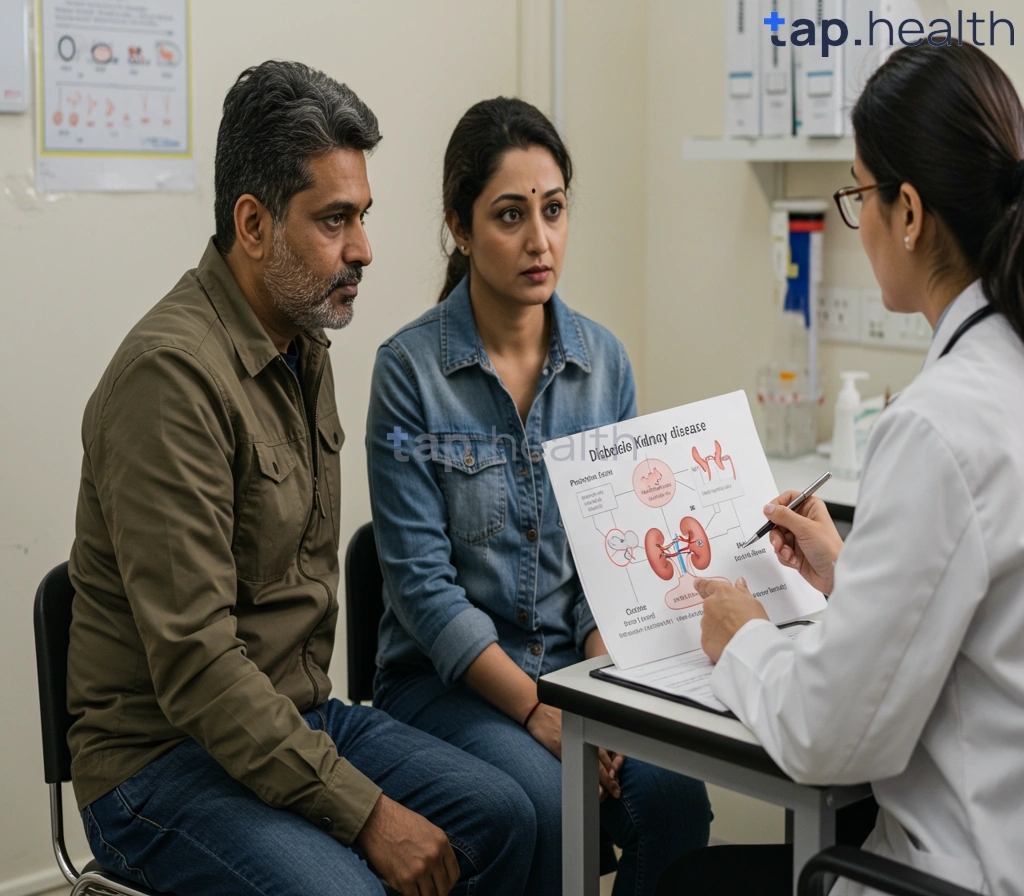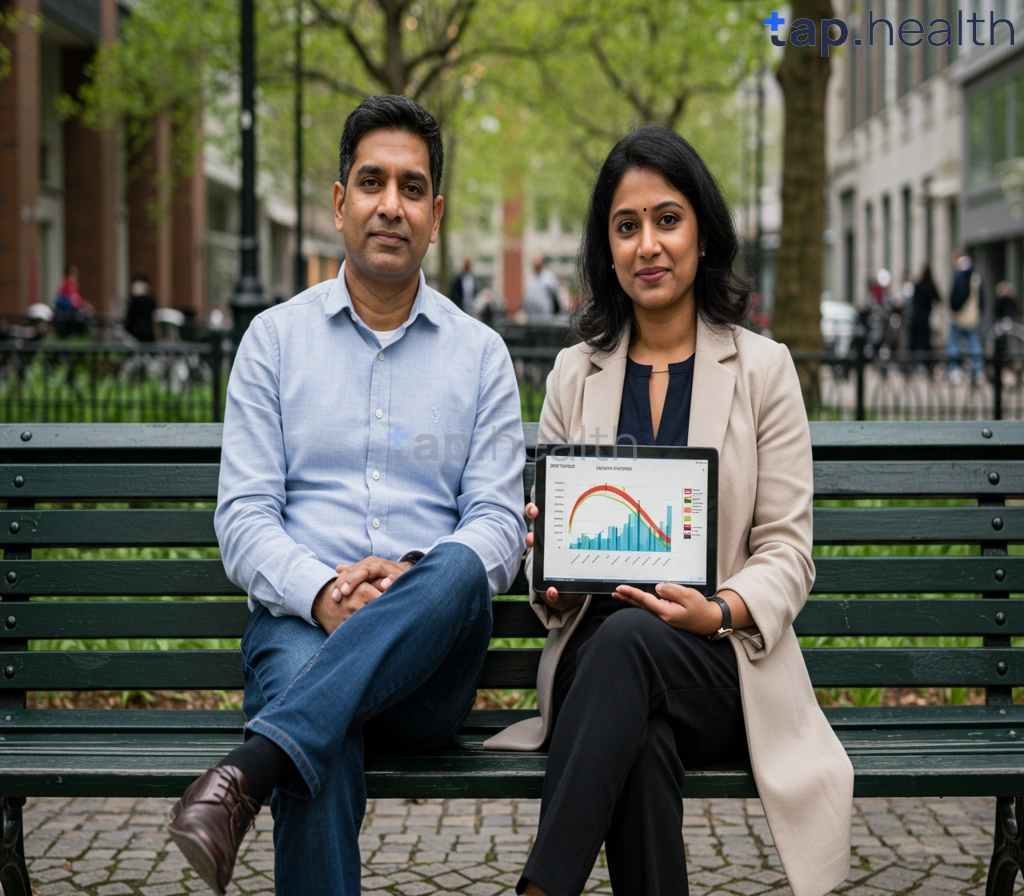Table of Contents
- Understanding the Diabetes-Anxiety Connection
- Nutrition Strategies to Manage Diabetes and Anxiety
- How Diet Affects Mental Health in People with Diabetes
- Recipes and Meal Plans for Better Mood and Blood Sugar Control
- Your Guide to a Balanced Diet for Diabetes and Anxiety Management
- Frequently Asked Questions
- References
Living with diabetes can be challenging enough, but did you know that it can also significantly impact your mental health? Many individuals with diabetes experience increased levels of anxiety, creating a complex interplay between physical and emotional wellbeing. This blog post explores the crucial link between Diabetes and Anxiety: How Diet Impacts Your Mental Wellbeing, offering practical insights and actionable advice. We’ll delve into how your nutritional choices can directly influence your anxiety levels and overall mental state, empowering you to take control of both your physical and mental health. Let’s discover how a carefully planned diet can make a real difference.
Understanding the Diabetes-Anxiety Connection
The link between diabetes and anxiety is stronger than you might think. Many individuals living with diabetes, particularly within the 20-64 age group—representing 61% of all people with diabetes worldwide, according to the International Diabetes Federation—experience heightened anxiety levels. This is especially prevalent in hotter climates like those found in many Indian and tropical countries, where managing blood sugar can be even more challenging due to factors like increased dehydration and dietary changes. The constant monitoring, medication management, and potential for complications can significantly contribute to feelings of stress and worry. For those aged 65 and above (39% of the global diabetes population), pre-existing anxieties can be exacerbated by the added burden of diabetes management.
The Impact of Diet on Anxiety in Diabetes
Dietary choices play a crucial role in managing both diabetes and anxiety. Unstable blood sugar levels, a common occurrence in poorly managed diabetes, can directly impact mood and increase anxiety. Refined carbohydrates, processed foods, and sugary drinks contribute to these fluctuations. In contrast, a diet rich in fruits, vegetables, whole grains, and lean proteins promotes stable blood sugar levels, leading to improved mood regulation and reduced anxiety. In Indian and tropical contexts, incorporating regionally available foods like lentils, spices known for their anti-inflammatory properties, and fresh seasonal produce can be particularly beneficial for managing both conditions. Understanding the link between diet and blood sugar control is crucial, and for more information on how obesity can contribute to diabetes, read our article on Understanding the Link Between Diabetes and Obesity.
Practical Steps for Better Mental Wellbeing
Prioritizing a balanced diet is key. Consult a doctor or registered dietitian to create a personalized meal plan tailored to your needs and the local food availability. Regular exercise, stress management techniques like yoga or meditation, and strong social support networks are also essential components of holistic diabetes management. Remember, taking care of your mental wellbeing is just as important as managing your physical health. Seek professional help if anxiety significantly impacts your daily life. By adopting a proactive approach to managing both your diabetes and your mental health, you can significantly improve your overall quality of life. For a deeper dive into the impact of diabetes on mental health, check out our blog post, The Impact of Diabetes on Mental Health.
Nutrition Strategies to Manage Diabetes and Anxiety
Managing diabetes and anxiety often goes hand-in-hand, and diet plays a crucial role in both. Studies show a strong correlation between blood sugar control and mental wellbeing. In India and tropical countries, where dietary habits are diverse, understanding this connection is particularly vital. Balancing your blood sugar levels is key to stabilizing mood and reducing anxiety symptoms.
Carb Control and Blood Sugar Stability
For people with diabetes, consistent carbohydrate intake is essential. While individual needs vary, aiming for roughly 45–60 grams of carbs per meal is a common guideline, helping avoid significant blood sugar spikes and crashes that can trigger anxiety. This isn’t about eliminating carbs entirely but rather focusing on complex carbohydrates like whole grains (brown rice, millets, roti made with whole wheat), legumes (lentils, chickpeas), and starchy vegetables (sweet potatoes, potatoes in moderation). These release energy more slowly, preventing drastic fluctuations.
Prioritizing Nutrient-Rich Foods
Beyond carb control, focus on nutrient-dense options abundant in Indian and tropical diets. Include plenty of fruits and vegetables rich in vitamins and minerals – mangoes, papaya, spinach, and okra, for instance, are excellent choices. These foods support overall health and contribute to stable mood regulation. Lean proteins, such as fish, chicken, and dals (lentils), are equally important for sustained energy and reduced anxiety.
Mindful Eating and Hydration
Practicing mindful eating is crucial. Avoid rushing meals, paying attention to hunger and fullness cues. This helps prevent overeating and blood sugar spikes. Staying well-hydrated is also key – dehydration can exacerbate anxiety and negatively impact blood sugar management. Drink plenty of water throughout the day, supplementing with herbal teas like Tulsi (holy basil) which are popular and beneficial in many tropical regions. For additional strategies to cope with stress and improve diabetes control, check out our article on Effective Stress Management Tips for Better Diabetes Control.
Seeking Professional Guidance
Remember, these are general guidelines. Consult a doctor or registered dietitian to create a personalized diabetes and anxiety management plan tailored to your specific needs and dietary preferences. They can help you navigate the nuances of your regional diet and ensure you are managing both conditions effectively. For more information on managing anxiety through nutrition and lifestyle choices, you might find our article, Managing Anxiety Through Nutrition and Lifestyle – Tap Health, helpful.
How Diet Affects Mental Health in People with Diabetes
Managing diabetes effectively is crucial not only for physical health but also for mental wellbeing. Studies show a strong link between diet and mental health, particularly in individuals with diabetes. For example, research indicates that the daily consumption of sugary beverages raises the risk of developing diabetes by 26%. This highlights the significance of mindful eating in preventing and managing the condition, and its impact on anxiety levels.
The Connection Between Sugar, Blood Sugar, and Anxiety
High blood sugar levels, often triggered by a diet rich in refined carbohydrates and sugary drinks prevalent in many Indian and tropical countries, can exacerbate anxiety symptoms. These fluctuations in blood glucose directly affect brain function, leading to mood swings, irritability, and heightened anxiety. Conversely, maintaining stable blood sugar levels through a balanced diet can significantly improve mental clarity and reduce feelings of anxiety. Prioritizing whole grains, lean proteins, and plenty of fresh fruits and vegetables is key.
Dietary Strategies for Improved Mental Wellbeing
Incorporating traditional Indian and tropical fruits and vegetables rich in antioxidants and fiber into your daily meals can provide essential nutrients that support mental health. Regular blood sugar monitoring alongside a diet low in processed foods and high in complex carbohydrates will help prevent blood sugar spikes and crashes, leading to improved mood regulation. Small, frequent meals can further help stabilize blood sugar levels throughout the day. Managing stress is also crucial, as How Stress Hormones Affect Diabetes explains. Weight management is another important factor, and you can learn more about How to Lose Weight with Diabetes Diet Plan.
Taking Action for Better Mental Health
Consult a doctor or registered dietitian to create a personalized diabetes management plan that addresses both your physical and mental health needs. This plan should consider your individual dietary preferences and cultural food habits, common in Indian and tropical regions. Remember, taking control of your diet is a powerful step towards better managing your diabetes and improving your overall mental wellbeing.
Recipes and Meal Plans for Better Mood and Blood Sugar Control
Understanding the Connection: Diabetes, Anxiety, and Diet
Managing diabetes in hot and humid climates like those found in India and other tropical countries presents unique challenges. High blood sugar levels (above 200 mg/dL indicates diabetes, while 140–199 mg/dL suggests prediabetes) can significantly worsen anxiety and mood. Conversely, anxiety can also affect blood sugar control, creating a vicious cycle. A well-planned diet is crucial in breaking this cycle and improving both your mental and physical wellbeing. Focusing on foods that help maintain a stable blood sugar level, between less than 140 mg/dL, is key.
Actionable Dietary Strategies for Mood and Blood Sugar Balance
Prioritizing whole grains like brown rice and millets, common staples across the Indian subcontinent, is a great start. These provide sustained energy release, preventing blood sugar spikes and crashes that trigger anxiety. Incorporate plenty of fresh, seasonal fruits and vegetables abundant in these regions. Think mangoes, papayas, leafy greens, and spices like turmeric, known for their anti-inflammatory properties which benefit both physical and mental health. Lean protein sources, such as lentils and fish, are essential for satiety and blood sugar regulation. Limit processed foods, sugary drinks, and refined carbohydrates – common culprits contributing to blood sugar imbalances and mood swings. For more natural ways to manage blood sugar, check out our article on Top 8 Natural Remedies to Improve Blood Sugar Levels.
Sample Meal Plan (Adaptable for Regional Preferences):
A typical day might include a breakfast of idli or dosa with sambar, a lunch of moong dal cheela with a mixed vegetable salad, and a dinner of rajma with brown rice. Remember to adapt these suggestions to your local produce and preferences while maintaining the principles of balanced blood sugar.
Next Steps for Better Wellbeing
Consult a doctor or registered dietitian to create a personalized diabetes management plan tailored to your specific needs and regional dietary habits. They can provide guidance on creating a meal plan that supports both your blood sugar control and mental wellbeing. Remember, consistent effort leads to significant improvements in both your physical and mental health. Learning to practice mindful eating strategies can also be incredibly beneficial in preventing those unwanted blood sugar spikes.
Your Guide to a Balanced Diet for Diabetes and Anxiety Management
Managing diabetes effectively is crucial for overall wellbeing, and this includes mental health. Studies show a significant link between diabetes and anxiety, with some research indicating a heightened risk of anxiety disorders in individuals with diabetes. Furthermore, the impact of diabetes extends beyond mental health; it’s linked to a 70% increased risk of sleep apnea and other sleep disorders, which further exacerbate anxiety and overall mental wellbeing. A well-balanced diet plays a pivotal role in managing both conditions.
Dietary Strategies for Diabetes and Anxiety in Tropical Climates
In Indian and tropical countries, access to fresh produce and specific ingredients can be leveraged for managing diabetes and anxiety. Prioritize foods rich in fiber, such as moong dal (mung beans) and various leafy greens readily available in the region. These foods help regulate blood sugar levels, reducing the risk of blood sugar spikes and crashes that can trigger anxiety. Incorporating spices like turmeric, known for its anti-inflammatory properties, can also contribute to overall wellness and stress reduction.
Practical Tips for Balanced Eating
Small, frequent meals are recommended to prevent blood sugar fluctuations. Focus on whole grains like brown rice and millets, which are staples in many Indian and tropical diets, over refined carbohydrates. Lean protein sources, such as fish and lentils, are crucial for maintaining healthy blood sugar levels and supporting mental health. Remember to stay hydrated by drinking plenty of water throughout the day, especially in warmer climates. For more specific guidance on creating a meal plan, you might find Diet Chart for Diabetic Patients to Control Diabetes helpful.
Seeking Professional Guidance
While dietary changes are crucial, it’s vital to consult with a healthcare professional or registered dietitian. They can provide personalized advice tailored to your specific needs and dietary preferences, considering your individual health conditions and the unique characteristics of your region’s food culture. Taking proactive steps to manage your diet is a key step towards improving both your physical and mental wellbeing. As you age, managing diabetes can present unique challenges. For insights and solutions, check out Managing Diabetes as You Age: Challenges and Solutions.
Frequently Asked Questions on Diabetes and Anxiety
Q1. How does diabetes affect my risk of anxiety?
Diabetes significantly increases anxiety risk, particularly for those aged 20-64. Poorly managed blood sugar, often linked to diets high in refined carbohydrates and processed foods, directly impacts mood and worsens anxiety.
Q2. What dietary changes can help manage both my diabetes and anxiety?
A diet rich in fruits, vegetables, whole grains, and lean proteins helps stabilize blood sugar, leading to improved mood regulation and reduced anxiety. Incorporating regionally available foods can also be beneficial.
Q3. Besides diet, what else can I do to reduce anxiety if I have diabetes?
Regular exercise, stress reduction techniques like yoga and meditation, and a strong social support network are all crucial for managing both diabetes and anxiety. A personalized plan from your doctor or dietitian will be most effective.
Q4. What are the potential challenges in managing both diabetes and anxiety?
Successfully managing both conditions requires commitment to a balanced diet, regular exercise, stress management, and consistent medical care. It’s important to be patient and persistent, as it may take time to find the right approach.
Q5. Where can I get personalized help for managing my diabetes and anxiety?
Consultations with doctors and dietitians are vital. They can create a personalized plan that addresses both your physical and mental health needs, helping you effectively manage your diabetes and improve your overall quality of life.
References
- What is Diabetes: https://www.medschool.lsuhsc.edu/genetics/docs/DIABETES.pdf
- Understanding Experiences of Diabetes Distress: A Systematic Review and Thematic Synthesis: https://onlinelibrary.wiley.com/doi/pdf/10.1155/2024/3946553




